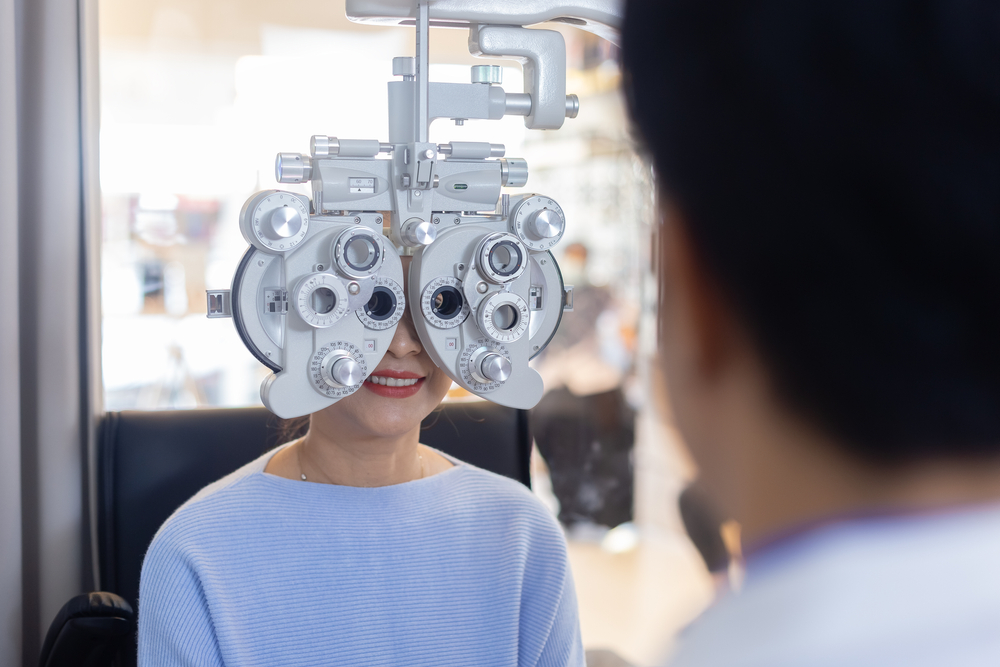
As you prioritize your overall health, it is essential not to overlook the importance of maintaining healthy eyes. Regular comprehensive eye exams play a fundamental role in detecting potential eye conditions, ensuring optimal vision, and preventing long-term damage.
What is a Comprehensive Eye Exam?
A comprehensive eye exam typically begins with a discussion of your medical history and any eye-related concerns you may have. This information helps the optometrist understand your specific needs and evaluate potential risk factors. Following this, a series of tests will be conducted to assess various aspects of your vision and overall eye health.
One of the primary tests performed during a comprehensive eye exam is the visual acuity test. This involves reading an eye chart from a specific distance to determine the sharpness and clarity of your vision. Additionally, a refraction test may be conducted to determine your exact eyeglass prescription, if needed.
Another crucial component of a comprehensive eye exam is the evaluation of your eye's health. This is typically done using a slit-lamp examination, which allows the optometrist to examine your cornea, iris, lens, and the back of your eye. The use of specialized instruments and lights enables them to detect any abnormalities, such as cataracts, glaucoma, or macular degeneration.
Additionally, the exam may include a test called tonometry to measure the pressure inside your eyes. High intraocular pressure can indicate the presence of glaucoma, a condition that can lead to vision loss if left untreated. Your eye doctor may dilate your pupils using eye drops to examine the retina and optic nerve more thoroughly.
Common Eye Conditions Detected During the Exam
A comprehensive eye exam is designed to detect a wide range of eye conditions, even those that may not exhibit noticeable symptoms. By identifying these conditions early on, prompt treatment can be initiated to prevent further damage and preserve your vision.
One of the most common eye conditions detected during a comprehensive eye exam is refractive errors. These include nearsightedness, farsightedness, and astigmatism. By accurately diagnosing these conditions, the eye care professional can prescribe corrective lenses or recommend other treatment options.
Additionally, a comprehensive eye exam can detect age-related eye conditions such as cataracts and macular degeneration. Cataracts cause clouding of the lens, leading to blurry vision, while macular degeneration affects the central part of the retina, leading to a loss of central vision. Detecting these conditions early on allows for timely intervention and management.
Other eye conditions that can be detected during a comprehensive eye exam include glaucoma, diabetic retinopathy, and retinal detachment. Glaucoma is characterized by increased intraocular pressure, which can damage the optic nerve and result in vision loss. Diabetic retinopathy is caused by damage to blood vessels in the retina due to diabetes, which can lead to vision impairment. Retinal detachment occurs when the retina becomes detached from its normal position, requiring immediate medical attention.
How Often Should You Get a Comprehensive Eye Exam?
The frequency of comprehensive eye exams depends on various factors, including your age, overall health, and any existing eye conditions. As a general guideline, it is recommended that adults with good vision undergo a comprehensive eye exam every one to two years. However, if you wear glasses or contact lenses, have a family history of eye conditions, or have diabetes or other chronic health conditions, more frequent exams may be necessary.
Children should also have regular eye exams to ensure optimal vision development and detect any potential problems early on. It is recommended that children have their first comprehensive eye exam at around 6 months of age, followed by another at 3 years old, and then regularly throughout their school years.
Individuals over the age of 60 should have annual comprehensive eye exams, as the risk of age-related eye conditions increases with age. Regular monitoring allows for early detection and intervention, reducing the risk of vision loss.
Schedule Your Next Eye Exam with Clarksdale Vision Center Today
Prioritizing your eye health by scheduling regular comprehensive eye exams is essential for maintaining optimal vision and preventing potential eye conditions from progressing unnoticed. These exams not only assess your vision but also enable the detection of various eye conditions, allowing for timely treatment and management. By investing in regular comprehensive eye exams, you are taking proactive steps to care for your eyes and maintain a lifetime of healthy vision.
Schedule your comprehensive eye exam and prioritize optimal vision and eye health, visit Clarksdale Vision Center at our office in Clarksdale, Mississippi, or call (662) 627-2020 to book an appointment today.




